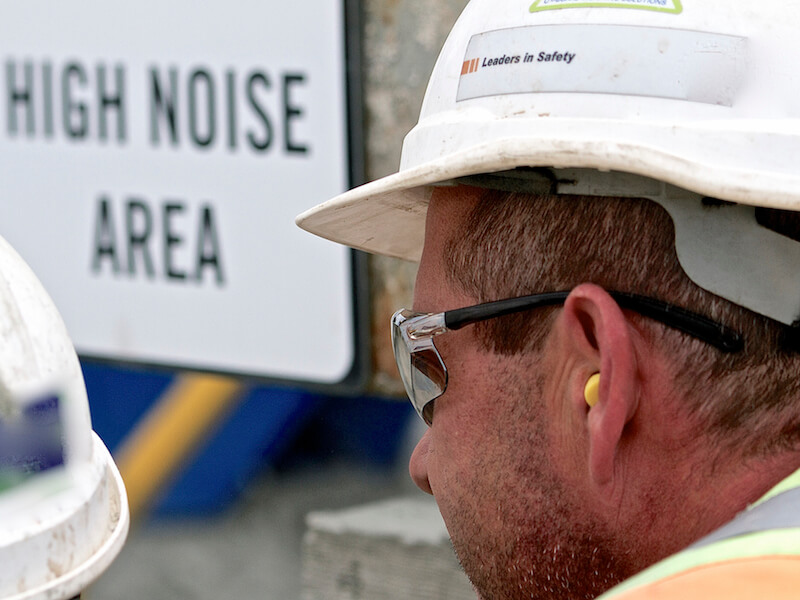
Your hearing can be damaged by a loud workplace and it can also impact your focus. Even modest noise, when experienced for eight hours a day, can begin to undermine your hearing health. That’s why it’s really smart to begin asking questions like, “what level of hearing protection should I use”?
It’s not common knowledge that numerous levels of hearing protection are available. But when you take a moment to consider it, it makes sense. A jet engine mechanic will need a different level of protection than a truck driver.
Levels of Hearing Damage
The fact that 85dB of sound can begin to harm your ears is a standard rule of thumb. We’re not really used to thinking about sound in decibels (even though that’s how we calculate sound – it just isn’t a figure we’re used to putting into context).
When you’re sitting in your car in city traffic, that’s approximately 85 decibels. That’s not a big deal, right? Actually, it’s pretty significant. It becomes a big deal after several hours. Because it’s not just the loudness of the noise that you need to be aware of, it’s how long you’re exposed.
Common Danger Zones
It’s time to consider hearing protection if you’re exposed to noise at 85 dB or louder for 8 hour days. But that’s not the only threshold you should be aware of. If you’re exposed to:
- 90 dB (e.g., lawnmower): Anything over four hours will be harmful to your hearing.
- 100 dB (e.g., power tools): Anything over one hour is considered damaging to your ears.
- 110 dB (e.g., leaf blower): Injury to your hearing takes place after 15 minutes of exposure to this noise level.
- 120 dB (e.g., rock concert): If you are exposed to this noise level for any amount of time, your hearing can be damaged.
- 140 dB (e.g., jet engine): This amount of noise will cause immediate damage and probably pain to your ears.
You’ll want the hearing protection you wear to be sufficient to bring the decibel level below that 85 dB level, particularly if you’re exposed to those noises for any duration.
Make Sure Your Hearing Protection Fits Comfortably
The effectiveness of hearing protection is quantified by something called a Noise Reduction Rate, or NRR. The higher the NRR, the quieter your world will become (temporarily).
Most workplaces will have recommendations as to what degree of protection will keep your ears safe because it’s important to have the right protection.
But there’s another element to consider as well: comfort. It turns out, comfort is extremely significant to keeping your ears healthy. Why? Because if your hearing protection is uncomfortable, you won’t wear it.
What Are my Hearing Protection Options?
You’ve got three basic options to choose from:
- Earplugs that stay just outside of the ear canal.
- In-ear earplugs
- Earmuffs.
There are advantages and disadvantages to each kind of protection, but most of your hearing protection choices will come down to personal preference. Earmuffs are the best option for individuals whose ears are irritated by earplugs. Other people may value the put-them-in-and-forget-them strategy of earplugs (of course, at the end of the workday you will need to take them out for a good cleaning).
Consistently Use Protection That Works Best For You
Any laps in your hearing protection can lead to damage, so comfort is an important factor. If earmuffs are scratchy and uncomfortable you’re more likely to take them off for short periods and that can have a negative impact on your hearing over time. This is why hearing protection that you can leave in for the whole workday is the best option.
You’re ears will remain healthier and happier if you choose the right degree of hearing protection for your situation.
Call Today to Set Up an Appointment
References
https://www.cdc.gov/nceh/hearing_loss/what_noises_cause_hearing_loss.html
